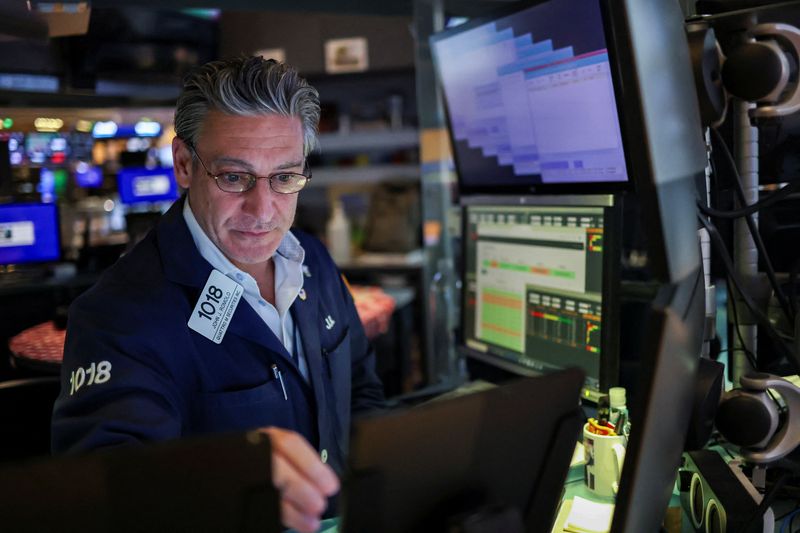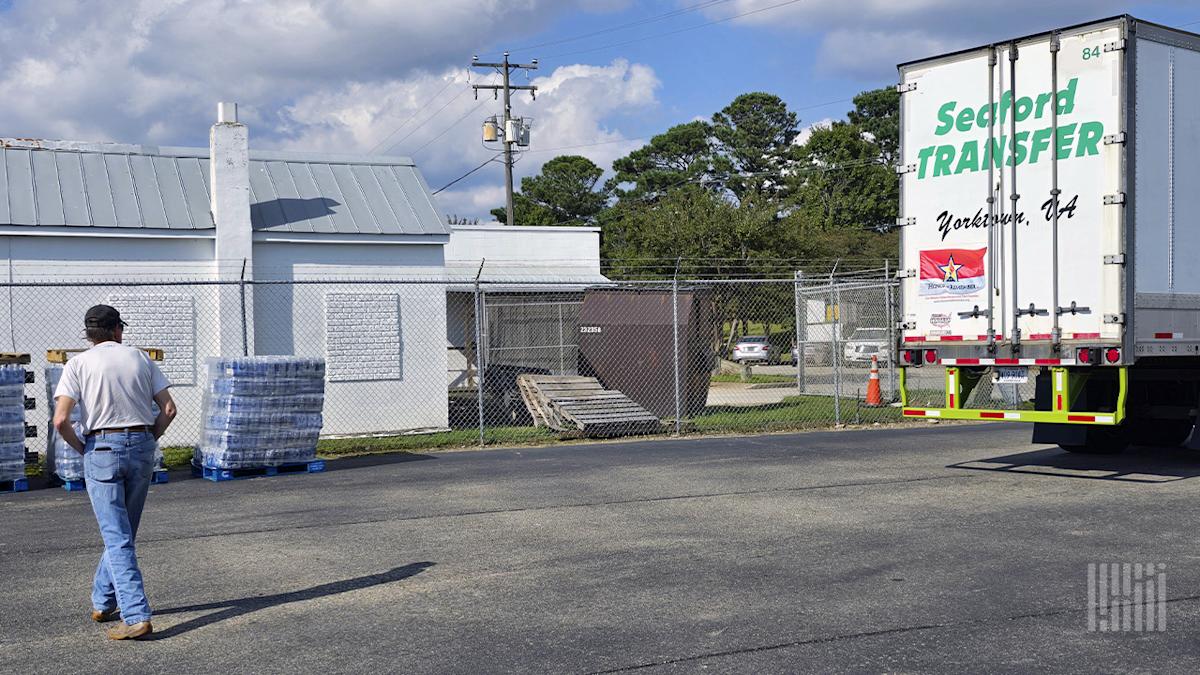Shares rise, Treasury yields fall, buoyed by easing trade tensions

By Chibuike Oguh and Tom Wilson
NEW YORK (Reuters) – Global shares rose on Tuesday, buoyed by signs of easing trade tensions, even as longer-dated U.S. Treasury yields were set for their biggest one-day drop in more than a month.
U.S. President Donald Trump paused his threatened tariffs until July 9 on U.S. imports of European goods following a weekend call with European Commission President Ursula von der Leyen.
Data showed on Tuesday that U.S. consumer confidence snapped five straight months of decline and improved in May amid a truce in the trade war between Washington and Beijing.
All three Wall Street indexes finished higher, with the benchmark S&P 500 and Nasdaq adding more than 2% following Monday’s Memorial Day holiday. The S&P 500’s 11 subsectors all gained, led by consumer discretionary and technology stocks.
The Dow Jones Industrial Average rose 1.78% to 42,343.65, the S&P 500 gained 2.05% to 5,921.54 and the Nasdaq Composite climbed 2.47% to 19,199.16.
European shares rose 0.33%, with the defence subindex reaching a record high.
UK shares climbed 0.69% following a holiday at the start of the week. MSCI’s gauge of stocks across the globe rose 1.21% to 880.84.
“We are seeing a relief rally as more and more there’s confirmation that all this (tariff threat) basically is negotiation tactics that have real teeth although not a bluff, meaning that Trump is not trying to drive us over the cliff but he’s taken us to the edge,” said Daniel Genter, president and chief investment officer at Genter Capital Management in Los Angeles.
“I think people are getting more confident that we are not going to have massive tariffs that are going to significantly interrupt the U.S. economy or business flow, and have a reversal of modest GDP growth.”
The yield on 30-year U.S. Treasuries fell 8 basis points to 4.9572%, on track for the biggest one-day decline since mid-April.
The 30-year yields – at the epicentre of the market selloff in April following Trump’s initial raft of tariffs – are still just below 5%, near their highest since October 2023.
The move mirrored a near-20-basis-point fall in yields for Japanese 30-year debt that came after a Reuters report on Tuesday that Tokyo will consider trimming issuance of the super-long bonds, after recent sharp rises in yields.
“It was good news over the weekend, at least for the market, with the 30-day extra time frame for the EU trade tariff negotiation deadline. I guess the market was happy about that,” said Wasif Latif, chief investment officer at Sarmaya Partners in New Jersey.





 Bitcoin
Bitcoin  Ethereum
Ethereum  Tether
Tether  XRP
XRP  Solana
Solana  USDC
USDC  Dogecoin
Dogecoin  Cardano
Cardano  TRON
TRON  Lido Staked Ether
Lido Staked Ether  Wrapped Bitcoin
Wrapped Bitcoin  Sui
Sui  Wrapped stETH
Wrapped stETH  Hyperliquid
Hyperliquid  Chainlink
Chainlink  Avalanche
Avalanche  Stellar
Stellar  Shiba Inu
Shiba Inu  LEO Token
LEO Token  Bitcoin Cash
Bitcoin Cash  Toncoin
Toncoin  Hedera
Hedera  Litecoin
Litecoin  WETH
WETH  USDS
USDS  Polkadot
Polkadot  Wrapped eETH
Wrapped eETH  Monero
Monero  Bitget Token
Bitget Token  Pepe
Pepe  Binance Bridged USDT (BNB Smart Chain)
Binance Bridged USDT (BNB Smart Chain)  Ethena USDe
Ethena USDe  Pi Network
Pi Network  Coinbase Wrapped BTC
Coinbase Wrapped BTC  WhiteBIT Coin
WhiteBIT Coin  Uniswap
Uniswap  Aave
Aave  Dai
Dai  Bittensor
Bittensor  NEAR Protocol
NEAR Protocol  Aptos
Aptos  Jito Staked SOL
Jito Staked SOL  OKB
OKB  Ondo
Ondo  Tokenize Xchange
Tokenize Xchange  BlackRock USD Institutional Digital Liquidity Fund
BlackRock USD Institutional Digital Liquidity Fund  Internet Computer
Internet Computer  Cronos
Cronos  Ethereum Classic
Ethereum Classic  Ethena Staked USDe
Ethena Staked USDe  Official Trump
Official Trump  Gate
Gate  Mantle
Mantle  Artificial Superintelligence Alliance
Artificial Superintelligence Alliance  VeChain
VeChain  Render
Render  Ethena
Ethena  sUSDS
sUSDS  Cosmos Hub
Cosmos Hub  USD1
USD1  Worldcoin
Worldcoin  POL (ex-MATIC)
POL (ex-MATIC)  Arbitrum
Arbitrum  Lombard Staked BTC
Lombard Staked BTC  Filecoin
Filecoin  Algorand
Algorand  Jupiter
Jupiter  Celestia
Celestia  Quant
Quant  Binance-Peg WETH
Binance-Peg WETH  Jupiter Perpetuals Liquidity Provider Token
Jupiter Perpetuals Liquidity Provider Token  Bonk
Bonk  Binance Staked SOL
Binance Staked SOL  Virtuals Protocol
Virtuals Protocol  Injective
Injective  Sonic (prev. FTM)
Sonic (prev. FTM)  KuCoin
KuCoin  Optimism
Optimism  Stacks
Stacks  Rocket Pool ETH
Rocket Pool ETH  Fartcoin
Fartcoin  USDT0
USDT0  NEXO
NEXO  Story
Story  Sei
Sei  Immutable
Immutable  dogwifhat
dogwifhat  SPX6900
SPX6900  The Graph
The Graph  Curve DAO
Curve DAO  Solv Protocol BTC
Solv Protocol BTC  Binance Bridged USDC (BNB Smart Chain)
Binance Bridged USDC (BNB Smart Chain)